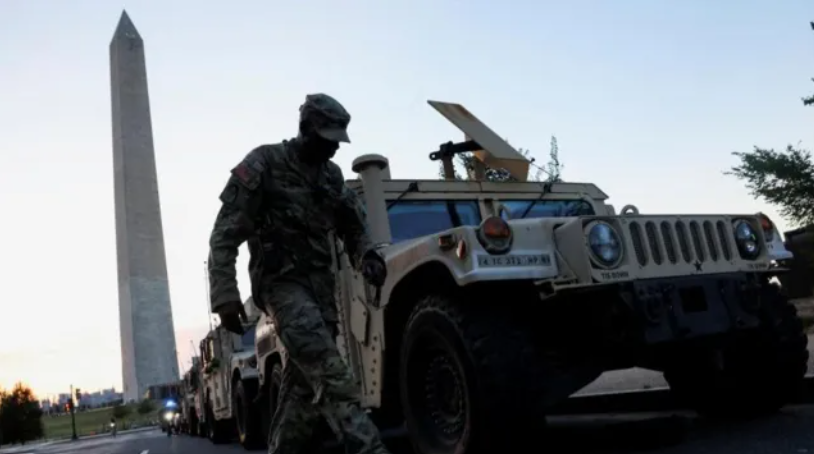Washington DC witnessed the arrival of National Guard troops and armoured vehicles on Tuesday evening following President Donald Trump’s directive to deploy federal forces to the capital. The move, which includes 800 National Guard members and 500 federal law enforcement agents, comes as Trump asserts violent crime is spiraling out of control in the city.
The deployment, announced Monday, also places the city’s police force under federal control a decision Washington DC Mayor Muriel Bowser, a Democrat, denounced as an “authoritarian push.” Trump, a Republican, has threatened similar measures in New York and Chicago, both Democratic-led cities.
Camouflaged troops have been seen erecting barricades near government buildings and interacting with tourists. Federal agents arrested 23 individuals on Monday night for offences ranging from homicide and gun crimes to drug dealing and reckless driving, according to White House press secretary Karoline Leavitt, who described the action as “only the beginning.” FBI Director Kash Patel confirmed the agency’s involvement in about half of the arrests.
While Mayor Bowser and Metropolitan Police Chief Pamela Smith initially acknowledged the potential benefits of federal assistance in removing illegal firearms, Bowser sharpened her tone during a Tuesday night town hall, urging residents to defend the city’s autonomy. She called for the election of a Democratic House as a safeguard against what she views as executive overreach.
The heightened security coincided with a manhunt for a suspect who fatally shot a man in Logan Circle a trendy neighborhood just a mile from the White House. It marked Washington DC’s 100th homicide of the year. The assailant, last seen in a black shirt carrying a rifle, remains at large.
Official statistics from the Metropolitan Police suggest violent crime fell 35% last year to a three-decade low, but DC Police Union chairman Gregg Pemberton has accused the department of manipulating data. FBI records also show a decline, though a more modest 9%. Despite the drop, Washington’s homicide rate remains above average compared to other major U.S. cities.
As tensions mount between federal authorities and local leadership, the capital stands at the center of a politically charged law-and-order debate that could ripple into other urban centers.

